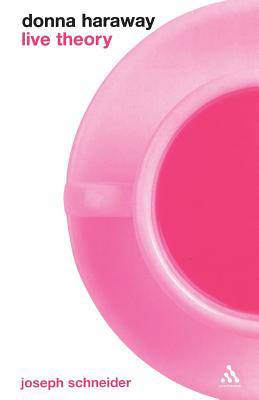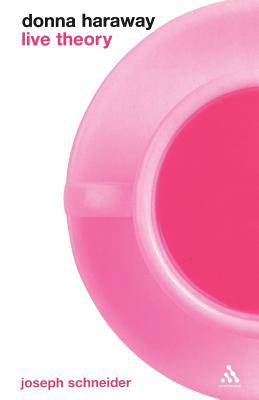
- Afhalen na 1 uur in een winkel met voorraad
- Gratis thuislevering in België vanaf € 30
- Ruim aanbod met 7 miljoen producten
- Afhalen na 1 uur in een winkel met voorraad
- Gratis thuislevering in België vanaf € 30
- Ruim aanbod met 7 miljoen producten
Zoeken
Omschrijving
Donna Haraway: Live Theory is an invaluable introduction to the work of this key contemporary theorist and critic. Concise, accessible and comprehensive, it locates Haraway in the context of post-Vietnam US academic life, drawing out the roots of her political and intellectual concerns. The book makes clear the extent of her impact on the understanding of the relationship between 'nature' and 'culture', and how this played no small part in shaping the discipline of cultural studies.
In particular, the book explores and illuminates the 'feminist science studies' that emerged from her writing, and her ongoing contribution to it, including the groundbreaking essays on the cyborg and situated knowledge. Haraway's identification of science and technology as being closely entwined with global capitalism is discussed in detail, as is her call for a new form of science that is resistant to any captialist imperative. The book includes a new interview with Haraway herself, in which she discusses the key themes in her work and likely and possible future directions. Donna Haraway: Live Theory is a key resource for anyone studying this pioneering thinker within the context of sociology, cultural studies and science studies.
In particular, the book explores and illuminates the 'feminist science studies' that emerged from her writing, and her ongoing contribution to it, including the groundbreaking essays on the cyborg and situated knowledge. Haraway's identification of science and technology as being closely entwined with global capitalism is discussed in detail, as is her call for a new form of science that is resistant to any captialist imperative. The book includes a new interview with Haraway herself, in which she discusses the key themes in her work and likely and possible future directions. Donna Haraway: Live Theory is a key resource for anyone studying this pioneering thinker within the context of sociology, cultural studies and science studies.
Specificaties
Betrokkenen
- Auteur(s):
- Uitgeverij:
Inhoud
- Aantal bladzijden:
- 200
- Taal:
- Engels
- Reeks:
Eigenschappen
- Productcode (EAN):
- 9780826462794
- Verschijningsdatum:
- 20/06/2005
- Uitvoering:
- Paperback
- Formaat:
- Trade paperback (VS)
- Afmetingen:
- 141 mm x 215 mm
- Gewicht:
- 258 g

Alleen bij Standaard Boekhandel
+ 128 punten op je klantenkaart van Standaard Boekhandel
Beoordelingen
We publiceren alleen reviews die voldoen aan de voorwaarden voor reviews. Bekijk onze voorwaarden voor reviews.








